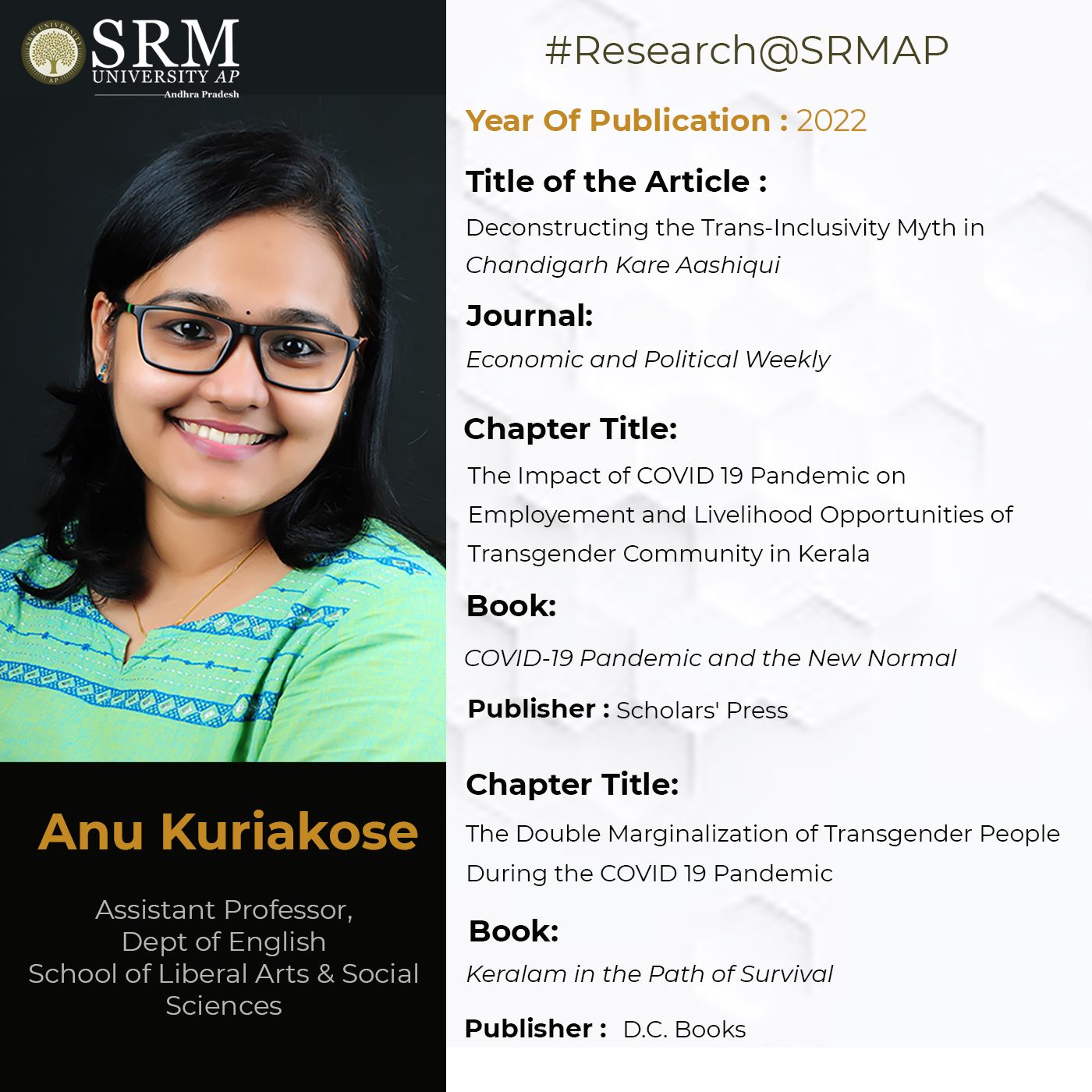
Embracing one’s transgender identity is a tremendous act of courage in a world that refuses to acknowledge their very existence. The narrations of their trials and tribulations continue to prevail despite the measures taken by the state machinery to assert their rights or the transgender revolution that spilt over in recent times. So long as the society continues to deny them a conducive space to exert their existence, the transgender community will have to endure hardships in all walks of life. The present-day researchers have increasingly shifted their focus on the LGBTQIA+ community to unravel their survival tales and awaken the population to their basic human rights.
Dr Anu Kuriakose, Assistant Professor from the Department of English, has also been looking into transgender lives and the anomalies in their representation. Her research analyses the inclusion and representation of transgender people in Indian films with a specific focus on the shift in representational politics and inclusive strategies in films of late. She has recently published a paper titled “Deconstructing the Trans-Inclusivity Myth in Chandigarh Kare Aashiqui” in the Economic and Political Weekly.
The article offers a critical reading of the Hindi film Chandigarh Kare Aashiqui (2021), which appears to maintain an inclusive outlook towards the queer community. Through the article, Dr Anu draws attention to the glaring presence of transphobic and homophobic attributes even in such progressive films. Her research attempts to analyse whether there have been any significant shifts in trans representation and inclusion in contemporary cinema.
She has also published two chapters, “The Impact of COVID 19 Pandemic on Employment and Livelihood Opportunities of Transgender Community in Kerala” and “The Double Marginalization of Transgender People During the COVID 19 Pandemic”, in the books COVID-19 Pandemic and the New Normal and Keralam in the Path of Survival respectively. The works recount the unspoken sufferings underwent by the transgender community in Kerala during the pandemic times. The chapters were co-authored by her peer, Dr Vinshi P K.
Her upcoming research plans include addressing gender diversity and inclusion in academic discourses in the vernacular of Kerala and critically reviewing the representational politics of trans femininity in visual cultural texts. By researching the portrayals of transgender community, Dr Anu intends to enhance awareness on the deviant representation of queer community in the realms of literature.

